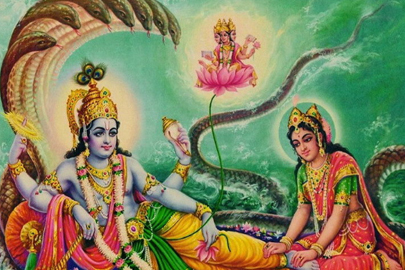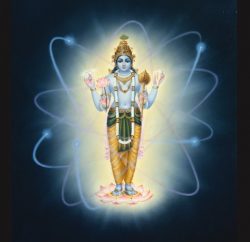All about Ekadashi

In Sanatana Dharma, Ekadashi holds great importance. Ekadashi is favourite tithi of Lord Krishna and devotees observe “upvas” to be closer to Krishna. In Nepal and India, Ekadasi is considered a day to cleanse the body. Also to aid repair and rejuvenation and is usually observed by partial or complete fast.
As per Hindu calendar, Ekadashi falls on the 11th day after the full moon and the 11th day after the new moon. It is considered as one of the most important fasts in the Hindu lunar calendar. ‘Ekadashi’ is a Sanskrit word which means eleven. As per Hindu calendar, there are two Ekadashis falling every month, namely Shukla Paksha or Gaura Paksha (period of brightening moon) and Krishna Paksha (dark lunar fortnight).
How many Ekadashi are there in 2022 in a year?
There are a total of 24 Ekadashi vrat observed in a one-year cycle.
A detailed insight into types of Ekadashi that falls on 2022 in a year

Thursday, 13 January Pausha Putrada Ekadashi
Friday, 28 January Shattila Ekadashi
Saturday, 12 February Jaya / Bhami Ekadashi
Sunday, 27 February Vijaya Ekadashi
Monday, 14 March Amalaki Ekadashi
Monday, 28 March Papmochani Ekadashi
Tuesday, 12 April Kamada Ekadashi
Tuesday, 26 April Varuthini Ekadashi
Thursday, 12 May Mohini Ekadashi
Thursday, 26 May Apara Ekadashi
Saturday, 11 June Nirjala Ekadashi
Friday, 24 June Yogini Ekadashi
Sunday, 10 July Deva Shayani Ekadashi
Sunday, 24 July Kamika Ekadashi
Monday, 08 August Shravana Putrada Ekadashi
Tuesday, 23 August Aja Ekadashi
Tuesday, 06 September Parivartini Ekadashi
Wednesday, 21 September Indira Ekadashi
Thursday, 06 October Papankusha Ekadashi
Friday, 21 October Rama Ekadashi
Friday, 04 November Devutthana Ekadashi
Sunday, 20 November Utpanna Ekadashi
Saturday, 03 December Mokshada Ekadashi
Monday, 19 December Saphala Ekadashi
Significance of Fasting on Ekadashi
As per Hindu lunar calendar, the human physiology goes through a cycle called a mandala, after every 40 to 48 days. This cycle has specific three days in which your body demands no food. The fast is observed from the sunset on the day before Ekadashi until sunrise on the next day. The spiritual fast lasts for 48 hours. The devotees not only gain spiritual insights but also attain mental clarity. According to Hindu scriptures, Lord Rama said if an individual kept regular fasting on Ekadashi, then all his previous sins would be removed.
Ekadashi in Hindu Scriptures
As per Hindu panchang calendar, all Ekadashi play a vital role. During Ekadashi, our mind attains maximum productivity to give our brain a better concentration power. On this spiritual day of Ekadashi, fasting helps you achieve mental peace. Along with spiritual insights, fasting gives your body a healthy regime. Devotees are advised to fully devote the fasts of Ekadashi in extreme ‘sadhana’ or worship. As per the saying of Lord Krishna, if someone fasts on Ekadashi, then all his sins and wrong deeds get burnt. Hence, this spiritual day is considered as one of the most preferred days to purge or cleanse all sins.
How to Fast on Ekadashi?
On Ekadashi dates, you need to keep anhydrous fast, that means you should not drink water the whole day. Such spiritual fasts should be broken the next day preferably with a liquid such as milk. If you are unable to keep an anhydrous fast (substance without water), then you can choose to go on a fruit diet.
Forceful denial of food is pointless because of your day-to-day physical activity. Apart from avoiding grains, cereals, and meat, many devotees also avoid activities such as shaving, clipping nails or cutting hair on this pious day of Ekadashi.
Hindu Rites Prohibited on Ekadashi
Hindu rites such as the ?funeral or Shraddha Puja are a big ‘No’ on the auspicious days of Ekadashi.
It is advisable not to plan marriage ceremonies and havan rituals on Ekadashi.As per Hindu scriptures, devotees are not allowed to consume grains and cereals on Ekadashi
If you are forced to conduct any worship or ritual on Ekadashi, only non-grain items could be served to guests.
L9oking to explore more on astrology and its diverse aspects click hereThe Philosophy of Dualism in Dvaita Vedanta


